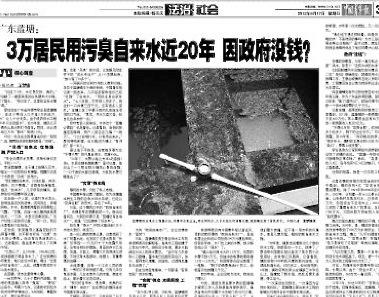“The People’s Republic of China has only been established for 62 years, and economic development for only 33 years. Can we suddenly become the best country in the world? Difficult. We might not have suffered enough, paid enough cost. To put it simply, the road ahead is still very long,” Wang said, according to Yao’s microblog.
In describing French society before the French revolution, de Tocqueville seemed to have transcended time, because a lot of what he mentions could also be applied to today’s China. For example: “When men are no longer bound by former ties, they are only too prone to give their whole thoughts to their private interest and to wrap themselves up in a narrow individuality in which public virtue is stifled. ... Hence the ruling passions become a desire for wealth at all cost … Despotism alone can supply the secrecy and darkness, which cupidity requires to be at ease, and which embolden men to brave dishonor for the sake of fraudulent gain.”
He described the mentality caused by a lack of political freedom as, “What seemed to be love for country turns out to be mere hatred of a despot.”
Regarding the rapid increase in wealth, de Tocqueville very seriously warned, “On the one hand, the nation’s desire for wealth grows explosively every day; on the other hand, the government continues to incite this desire, but also continues to obstruct. To light up this passion, but then to extinguish it again, accelerates its own demise.”
His words could also easily explain the CCP’s stranglehold on power when he noted that the pre-1789 French government “merely yielded to the instinctive desire of every government to gather all the reins of power into its own hands.”
Not a Lone Opinion
Chinese legal scholar He Bing also has worries similar to de Tocqueville’s.
“Speaking of the current situation in China, on one hand, a large amount of private wealth is taken for public use; on the other hand, a large amount of public wealth has been transferred to private accounts; national wealth and private wealth are closely linked together, to a degree never seen in history. National administrative measures no longer remain in the public domain, but directly affect the private wealth of hundreds of millions of people,” he blogged.



